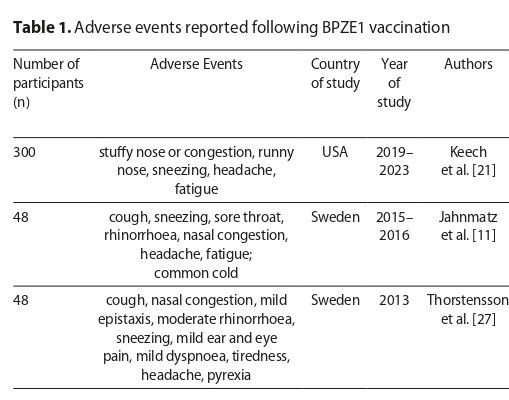REVIEW PAPER
„Intranasal Vaccination Against Influenza, Pertussis, and COVID-19: Clinical Efficacy, Immunological Challenges, and Development of Prevention of Respiratory Diseases”
1
Lifestyle Medicine Scientific Student Group, Department of Biochemical Science, Pomeranian Medical University in Szczecin, Poland, Pomeranian Medical University in Szczecin, Poland
2
Department of Biochemical Science, Pomeranian Medical University in Szczecin, Poland, Pomeranian Medical University in Szczecin, Poland
Corresponding author
Joanna Walczyńska
Studenckie Koło Naukowe Medycyny Stylu Życia przy Zakładzie Badań Biochemicznych Pomorskiego Uniwersytetu Medycznego w Szczecinie, Polska, Pomorski Uniwersytet Medyczny w Szczecinie, Polska
Studenckie Koło Naukowe Medycyny Stylu Życia przy Zakładzie Badań Biochemicznych Pomorskiego Uniwersytetu Medycznego w Szczecinie, Polska, Pomorski Uniwersytet Medyczny w Szczecinie, Polska
KEYWORDS
TOPICS
ABSTRACT
Introduction and objective:
Respiratory diseases such as influenza, COVID-19 or pertussis pose a significant public health threat, especially among at-risk groups such as the elderly and chronically ill. The aim of this article is to assess the potential of intranasal vaccines as a modern, safe and promising alternative to classical immunization methods, especially in the context of preventing the spread of infectious diseases.
Review methods:
The literature review was based on PubMed and Google Scholar databases (up to 31 December 2024), with no restrictions on publication date. The search terms used were: ‘pertussis vaccination’, ‘COVID-19 vaccination’, ‘influenza vaccination’. Studies in animal and human models on the efficacy of intranasal vaccination were included.
Brief description of the state of knowledge:
Intranasal preparations against influenza, pertussis and COVID-19 show great potential. The use of hydrogel substances can prolong the presence of the antigen in the nasal cavity, promoting the development of durable immunity. BPZE1 is a pertussis vaccine with good tolerability and efficacy in clinical trials. It has also been shown that the combination of intranasal and systemic vaccines can enhance the immune response.
Summary:
Intranasal vaccines are effective in inducing mucosal and systemic immune responses against pertussis, influenza and SARS-CoV-2. The present results suggest that they may become an important tool for the prevention of respiratory diseases and require further clinical trials.
Respiratory diseases such as influenza, COVID-19 or pertussis pose a significant public health threat, especially among at-risk groups such as the elderly and chronically ill. The aim of this article is to assess the potential of intranasal vaccines as a modern, safe and promising alternative to classical immunization methods, especially in the context of preventing the spread of infectious diseases.
Review methods:
The literature review was based on PubMed and Google Scholar databases (up to 31 December 2024), with no restrictions on publication date. The search terms used were: ‘pertussis vaccination’, ‘COVID-19 vaccination’, ‘influenza vaccination’. Studies in animal and human models on the efficacy of intranasal vaccination were included.
Brief description of the state of knowledge:
Intranasal preparations against influenza, pertussis and COVID-19 show great potential. The use of hydrogel substances can prolong the presence of the antigen in the nasal cavity, promoting the development of durable immunity. BPZE1 is a pertussis vaccine with good tolerability and efficacy in clinical trials. It has also been shown that the combination of intranasal and systemic vaccines can enhance the immune response.
Summary:
Intranasal vaccines are effective in inducing mucosal and systemic immune responses against pertussis, influenza and SARS-CoV-2. The present results suggest that they may become an important tool for the prevention of respiratory diseases and require further clinical trials.
Share
RELATED ARTICLE
We process personal data collected when visiting the website. The function of obtaining information about users and their behavior is carried out by voluntarily entered information in forms and saving cookies in end devices. Data, including cookies, are used to provide services, improve the user experience and to analyze the traffic in accordance with the Privacy policy. Data are also collected and processed by Google Analytics tool (more).
You can change cookies settings in your browser. Restricted use of cookies in the browser configuration may affect some functionalities of the website.
You can change cookies settings in your browser. Restricted use of cookies in the browser configuration may affect some functionalities of the website.



